Why are people arguing about Atomic Heart?
Mundfish's retro-future Soviet shooter has stirred up a whole lot of controversy.
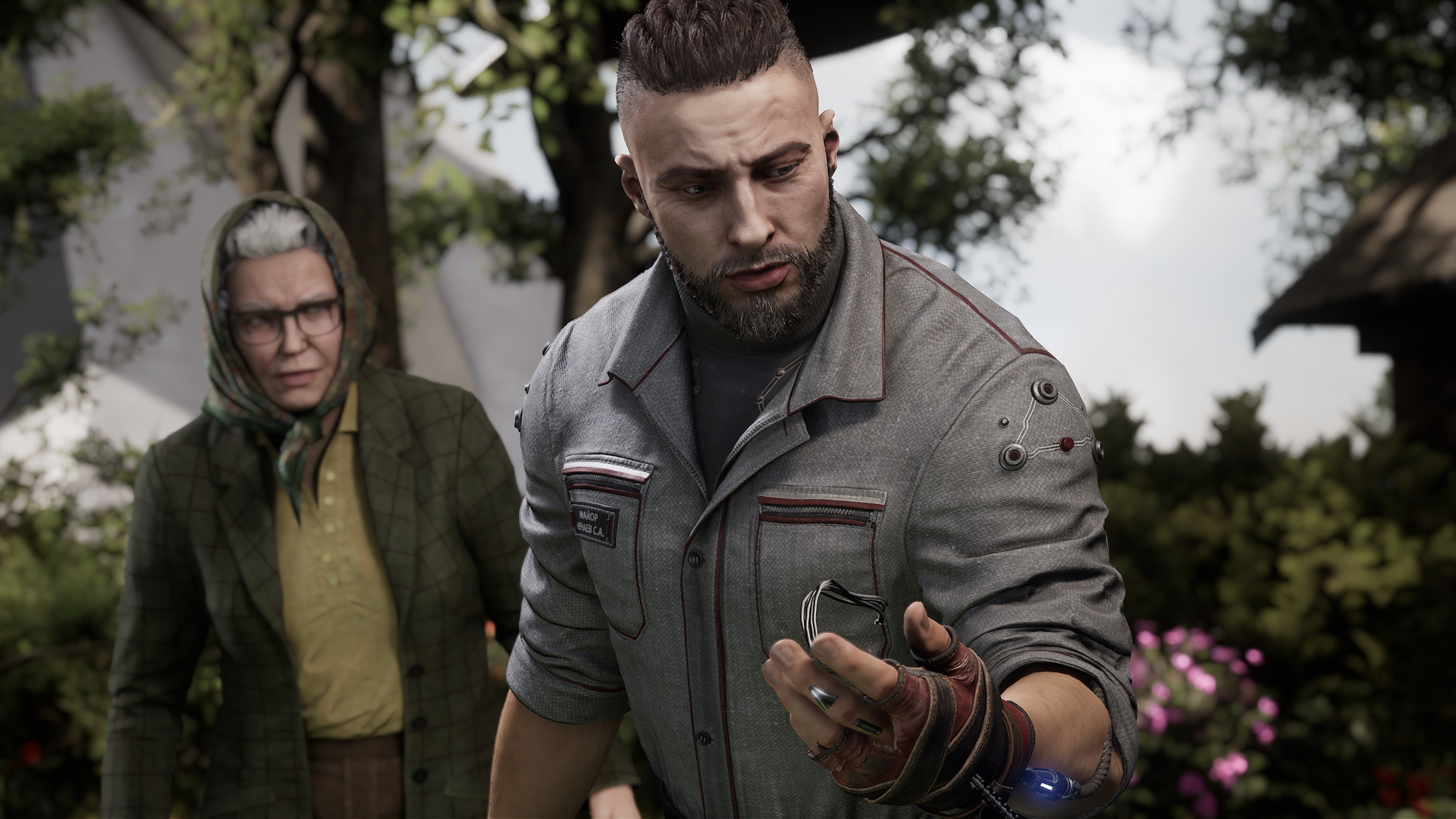
Atomic Heart was a bolt from the blue when its first trailer dropped in 2018, showcasing a shining Soviet retrofuture FPS that seemed like it was learning all the right lessons from BioShock, Stalker, and the Metro series. Never mind that it was the debut game from a new developer—a Russian studio called Mundfish—it was laser-targeted at a category of players who devoured immersive sims and ambitious-but-flawed works of genius from East European studios alike. It very quickly became an object of internet obsession, a game we were intrigued by but knew very little about.
But a lot has happened since then. In February last year, Russia invaded Ukraine, starting a war that has killed thousands on both sides and sparked one of the biggest refugee crises in modern history, with millions of Ukrainians fleeing abroad to escape the war at home. Russia became an overnight pariah in the west, excised from fundamental mechanisms in the international banking system, deserted by some of the biggest corporations in the world—including several gaming titans—and censured in the UN.
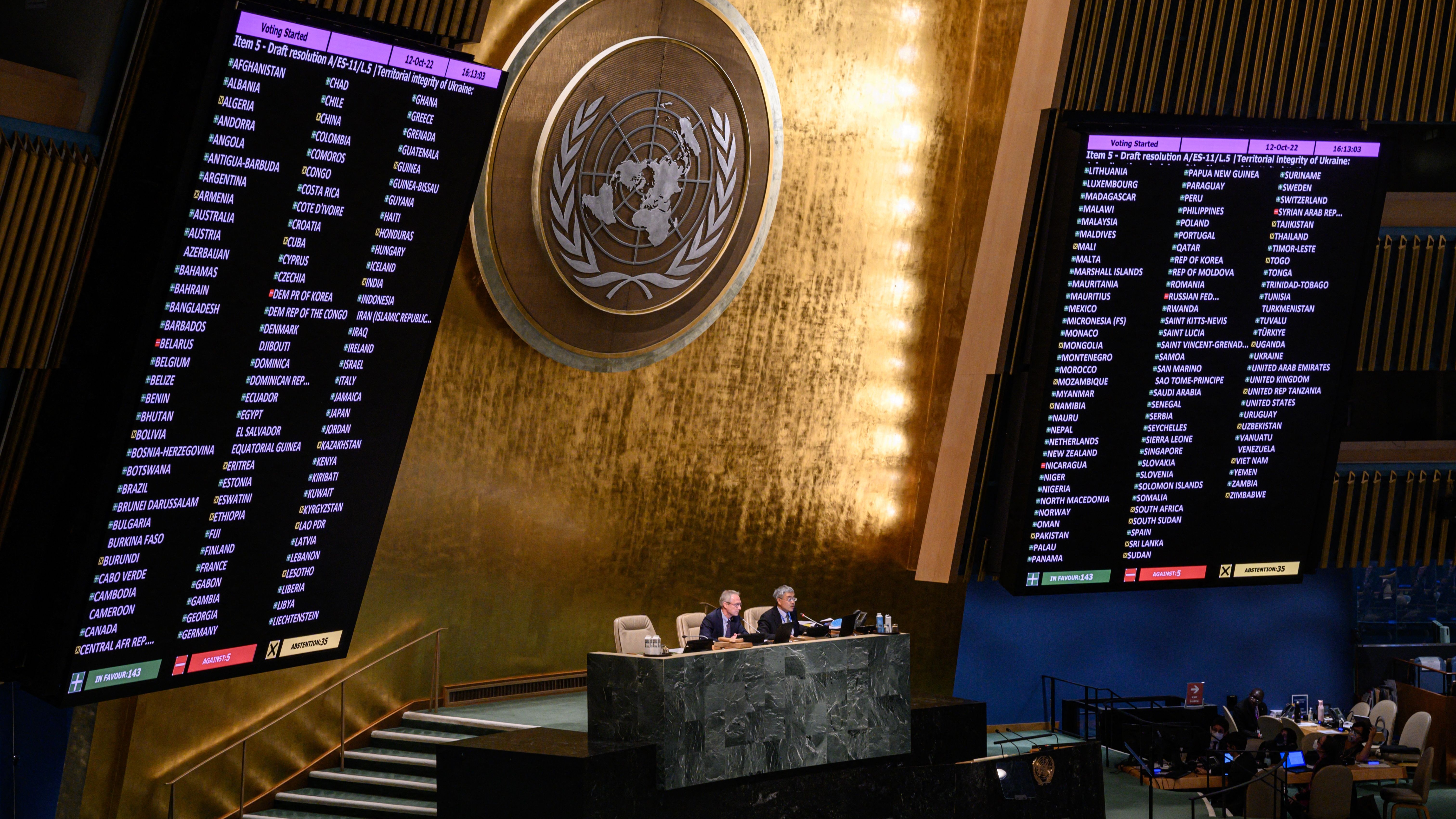
In the wake of that invasion, Atomic Heart's Russian provenance became more than an interesting detail of the game's development. As many kinds of Russian art found itself subject to intense scrutiny and swift bans, rumours began to swirl about Mundfish's investors and excited fans feared their purchase would somehow end up funding a brutal war. Even though Mundfish says it's based in Cyprus, gamers are still arguing about whether it's okay to buy Atomic Heart.
An equivocal statement on the war
Although some kind of debate has gone on around Atomic Heart since Russia first invaded Ukraine, it was brought to the fore by a tweet from Mundfish last January. In response to questions about where the studio stood in regards to the war, Mundfish tweeted that it was "a global team focused on an innovative game and is undeniably a pro-peace organization against violence against people," and did not "comment on politics or religion".
It also tweeted that it didn't "condone contributors or spammers with offensive, hateful, discriminatory, violent, or threatening language or content," and, indeed, has been criticised for blocking users that ask about its position on the war.
Guys, we have noted the questions surrounding where we, at Mundfish, stand. We want to assure you that Mundfish is a developer and studio with a global team focused on an innovative game and is undeniably a pro-peace organization against violence against people.January 16, 2023
It was not the statement of support for Ukrainian independence that some were hoping for. Mundfish's reticence to even name the war in question sparked outrage, summed up by tweets from game designer Sergey Mohov, who mocked Mundfish's position as "We're for all the good things and against all the bad ones," lambasting the studio for "having the unbelievable privilege to have this kind of position".
"We're for all the good things and against all the bad ones"
Sergey Mohov mocks Mundfish's statement
Mundfish's statements that it was only interested in "getting Atomic Heart into the hands of gamers everywhere," or that it was "For players who just want to play," struck some people as, at best, a marketing attempt to redirect the conversation surrounding its game or, at worst, some kind of tacit support for the actions of its original home country. A video from a Ukrainian YouTuber titled "Please, Don't Buy Atomic Heart"—which has managed to accrue nearly 2 million views in just over a week—highlighted the absurdity of a game based around an alt-history USSR claiming it doesn't "comment on politics," calling it "absolute nonsense" and "one step away from the types of gamers who say 'I don't like politics in my videogames' and then immediately open up Fallout".
Keep up to date with the most important stories and the best deals, as picked by the PC Gamer team.
We’re for all the good things against all the bad ones. Imagine having the unbelievable privilege to have this kind of position. I can’t.The death toll in Dnipro is up to 35 now. Russia is to blame for it. Sanctions are there to stop its terror.January 16, 2023
On the other hand, whether it's headquartered in Cyprus or not, Mundfish is a studio with Russian roots and Russian staff (with Russian family and Russian friends), as a 2019 article documenting a tour of its Moscow office will attest. The Russian state has taken a hard line against any and all internal protest against its so-called "special military operation" in Ukraine, arresting thousands of protestors, threatening years in prison camps over anti-war social media posts, and charging a political opposition figure with treason for "spreading disinformation" about the Russian army.
Even when Russia isn't at war, the country maintains a deeply alienating political system that has entrenched power among a cabal of lackeys and oligarchs for decades. The Russian political scientist and anti-war activist Greg Yudin described this system as one that generates "incredible contempt and disdain for all kinds of politics" among Russians, who are "completely certain that there is no possible way to change anything through politics, that no change is possible in general".
Marking oneself as anti-war in that kind of environment is an act of profound courage and incredible risk. It could be that Mundfish's tweet was an ungraceful attempt to thread a political needle without jeopardising itself, its staff, or those associated with either.
I've reached out to the studio to ask about its statement on the war, and I'll update this section if I hear back.
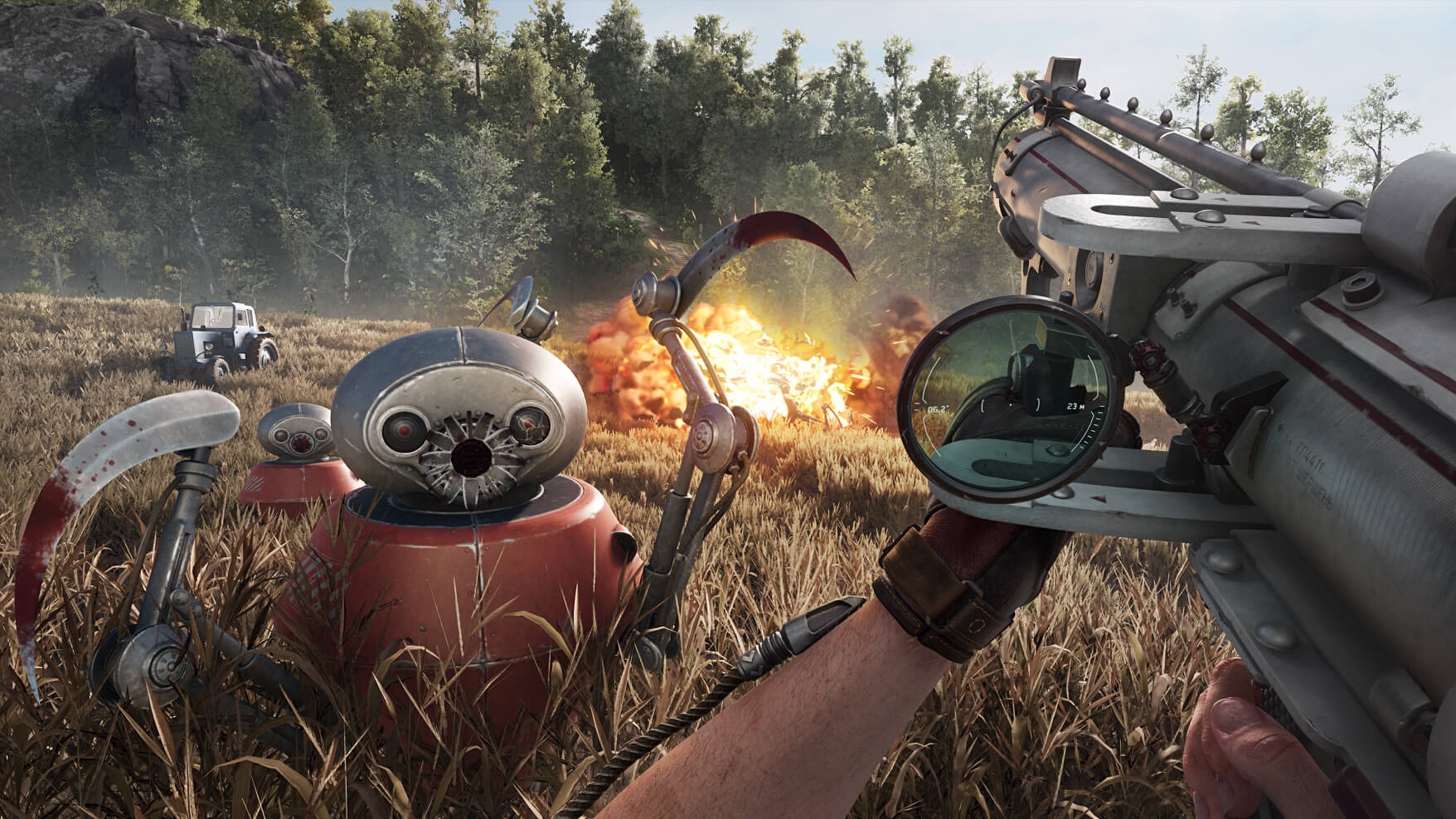
Following the money: Mundfish's investors
In early 2021, over a year before Russian tanks rolled into Ukraine, Mundfish announced that it had secured funding from three key investors: Tencent, GEM Capital, and Gaijin Entertainment (the maker of War Thunder). Tencent is, well, Tencent, the Chinese tech behemoth that owns whole segments of the gaming industry, from a piece of Epic Games, Discord, and Ubisoft to Riot Games in its entirety. But the other two quickly became more controversial in the wake of the invasion, with audiences placing both companies under the microscope to figure out where they stood in relation to the war, and whether they might be financially supporting the Russian state.
Here's what's definitely true: GEM Capital founder Anatoliy Paliy worked as first deputy general director for a Gazprom subsidiary—Gazprom Gazenergoset—in the past, before going into business for himself alongside other Gazprom management types in the 2010s. Gazprom is Russia's state-run energy giant which generates scads of cash for the government, has been instrumental in the ongoing economic warfare between Russia and the west, and which was reported to be creating its own private military company as recently as last week.
Atomic Heart is also being distributed via VKPlay in Russia—after sanctions led Steam to effectively end business there—and a few other countries. VKPlay is run by VKontakte, a social media company often referred to as 'Russia's Facebook' over which Gazprom has effective control via investments made by subsidiaries and affiliate companies.
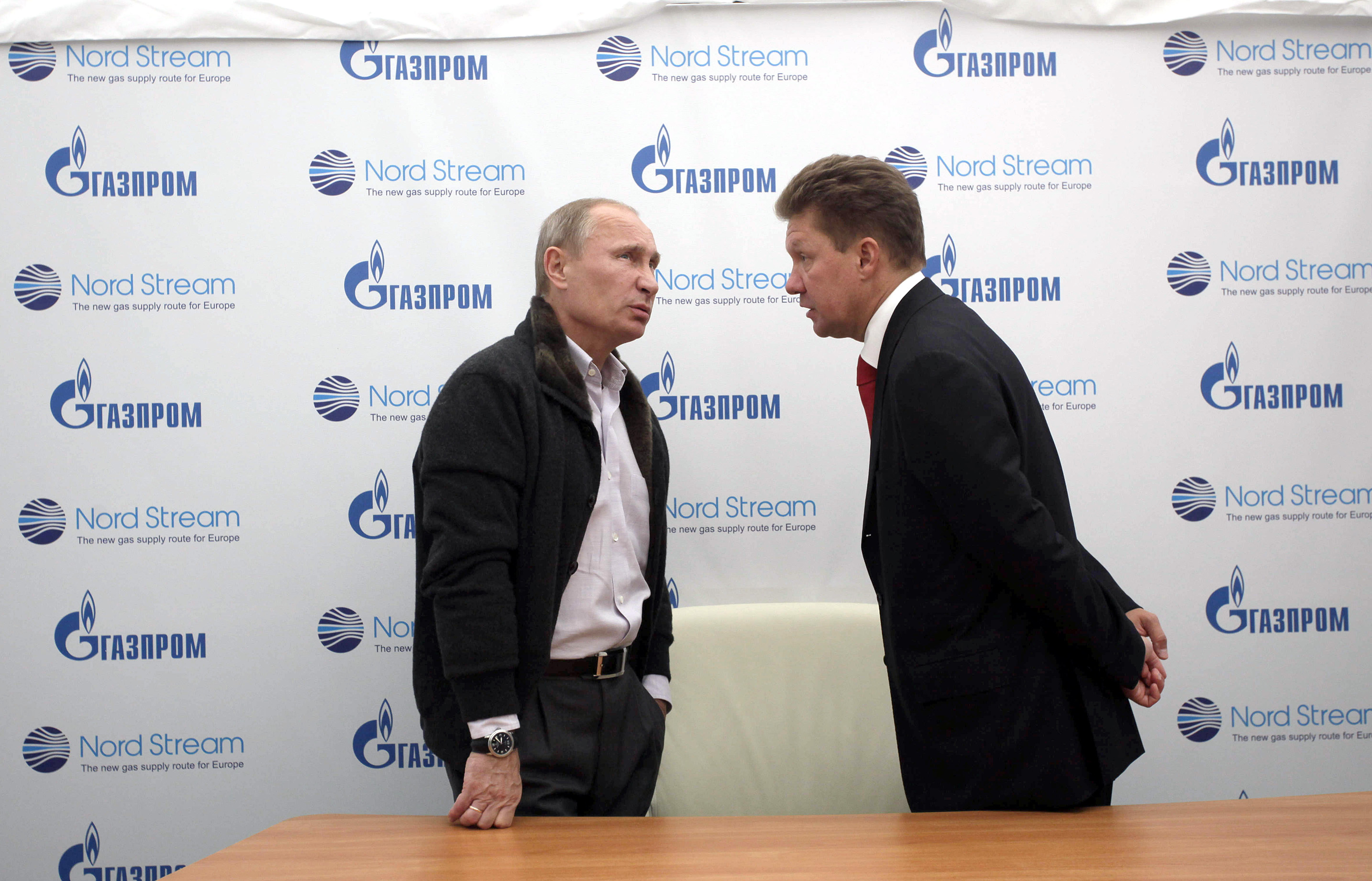
Whether or not Paliy is personally associated with this or that infamous Russian oligarch is more tenuous and difficult to concretely establish, but GEM was still wheeling and dealing in the Russian energy sector as recently as 2021. It's hardly out of the realm of possibility that a businessman with Gazprom ties and investments in Russian energy—the sector where several oligarchs make their money—would be on first-name terms with some of Russia's ruling elite.
Gaijin, meanwhile, came under fire for a reason that's far easier to parse. In 2021, midroll ads for Gaijin's games appeared in videos shot by a YouTuber in an area of the Donetsk People's Republic, a pro-Russian separatist region of Ukraine that the Ukrainian government considers occupied territory (and which was recognised by Russia as a sovereign state just prior to the 2022 invasion). The War Thunder logo was also visibly spray-painted onto props used in the video.
When questioned, Gaijin said it didn't directly buy YouTube ads on any channel "except a handful of extremely big ones". All others, it claimed, were bought through YouTube itself or through advertising agencies. Gaijin said it doesn't "provide political support to anyone anywhere," and knows "nothing about politics and [prefers] to stay out of it". The videos in question were made private, and Gaijin, in a statement echoing Mundfish's own, said it prefers "to talk about games and games only".
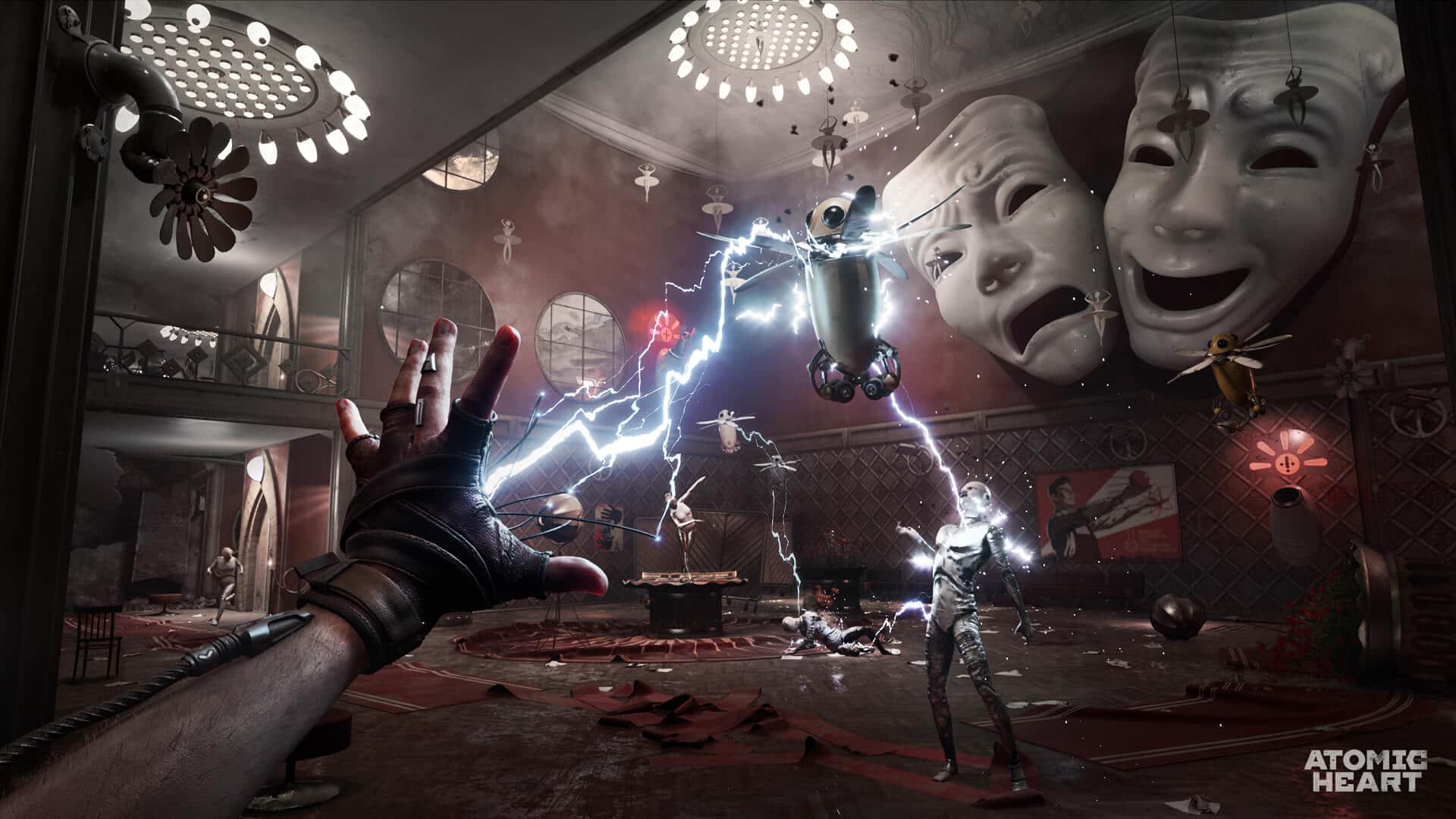
GEM Capital told games journalist Kirk McKeand that it has no Russian investments as of 2022 (like Mundfish, it now says it's Cyprus-based), and Gaijin's headquarters are in Hungary. Nevertheless, it seems unlikely that no money earned by Mundfish and its investors from Atomic Heart's sales will end up in the pockets of the Russian state, if only by taxation on whatever interests they still have in the country, so a refusal to purchase the game on those grounds seems pretty justified, but some people have rankled at what they perceive as a double standard here.
An Arabic Resetera user going by the name Al-Dylan summed this viewpoint up in post which said it was hurtful to see people advocate only for boycotts "against Russia (and not even against Russia for how they helped destroy Syria, only for what they are doing in Ukraine)," while nothing is said "against the US for how they financed terrorists, invaded and completely destroyed our countries for decades, or Israel and its apartheid regime against Palestinians, or Saudi Arabia for what they've done not only in Yemen, but in the whole region by funding wahabist [sic] groups".
After all, we exist in a world in which companies like Nintendo enjoy direct investments from the Saudi Arabian Public Investment Fund, Activision employs a former politician who defended torture under the Bush administration, the military uses videogames as a recruitment tool, and Call of Duty worked with a man who helped fund right-wing death squads in Nicaragua. To some people participating in the debate around Atomic Heart, it seemed arbitrary to boycott that game for its possible ties, but to let so much else slip by. Though, of course, the takeaway from this probably isn't that Atomic Heart shouldn't be criticised, but that far more games should be.
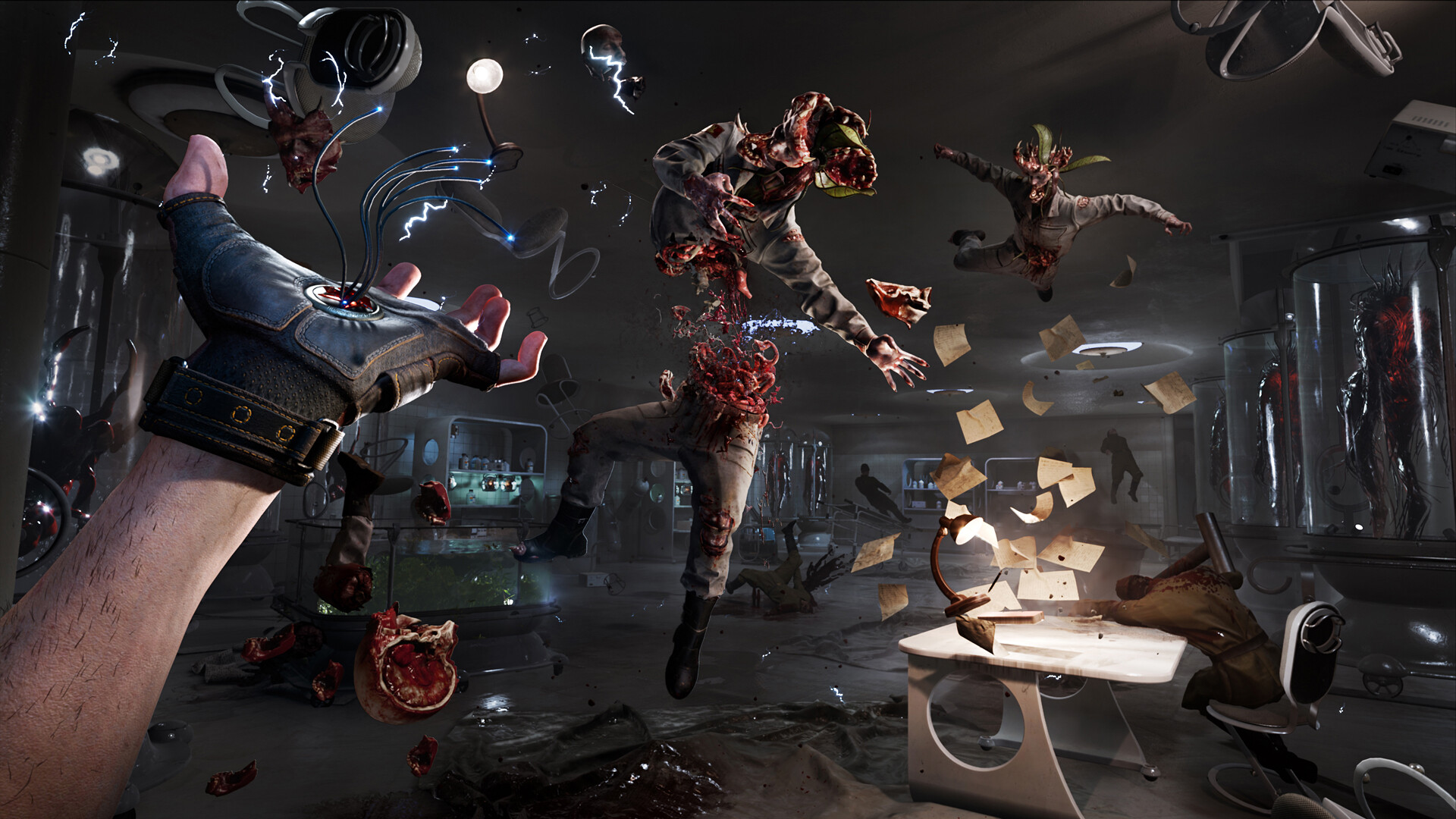
I've asked Mundfish about these issues, too, and I'll update this section if I receive a response.
Fetishising the USSR
The takeaway from this probably isn't that Atomic Heart shouldn't be criticised, but that far more games should be
Atomic Heart lives and breathes Soviet kitsch, but not everyone finds it quaint. In particular, an event held for Russian games media drew criticism for its seemingly uncritical reproduction of Soviet revolutionary bombast: The walls were festooned with slogans reading things like "Glory to Soviet engineers," everything was swathed in red, and in general the entire thing felt like a psychedelic retrofuture take on Stalin's funeral.
pic.twitter.com/tGQtT3XaOfNovember 24, 2022
To some, it felt like Mundfish—which has drawn criticism for downplaying its Russian roots in the wake of Russia's invasion of Ukraine—was actively celebrating the legacy of the Soviet Union, with all the connotations of 'unity' between Russia and Ukraine that entails. Sergey Mohov spoke up again, suggesting that the notion that Atomic Heart would be critical of the Soviet Union was clearly false given the nature of the event. The fact that the game's protagonist—Major Nechaev—is an agent of the Soviet KGB has also raised eyebrows as onlookers worry the game might attempt to rehabilitate the notorious Soviet intelligence service.
Given that the game isn't out yet, there's not much to go on here beyond the screenshots, trailers, and brief hands-on sessions we've gotten so far from Atomic Heart. But we do know that the central narrative of the game centres around a bloody disaster at a Soviet research facility, where the robotic servants that are meant to tend to man's needs have become unhinged and started murdering them instead. The theme here seems to be one of a utopian vision with a rotten, eventually-fatal flaw in its foundation, which has been a recurring theme in anti-Soviet art and literature since there's been anti-Soviet art and literature.
When I got to play the game recently, I felt like I had the narrative figured out in the first 10 minutes: Your Soviet philosopher-king boss will turn out to be a bad guy and the dissidents he tasks you to hunt down will end up being right all along. I could be wrong, of course, and it could be the case that Atomic Heart ends up taking an uncritically apologetic view on the USSR, but that'd be quite a left-turn based on what we've seen so far.
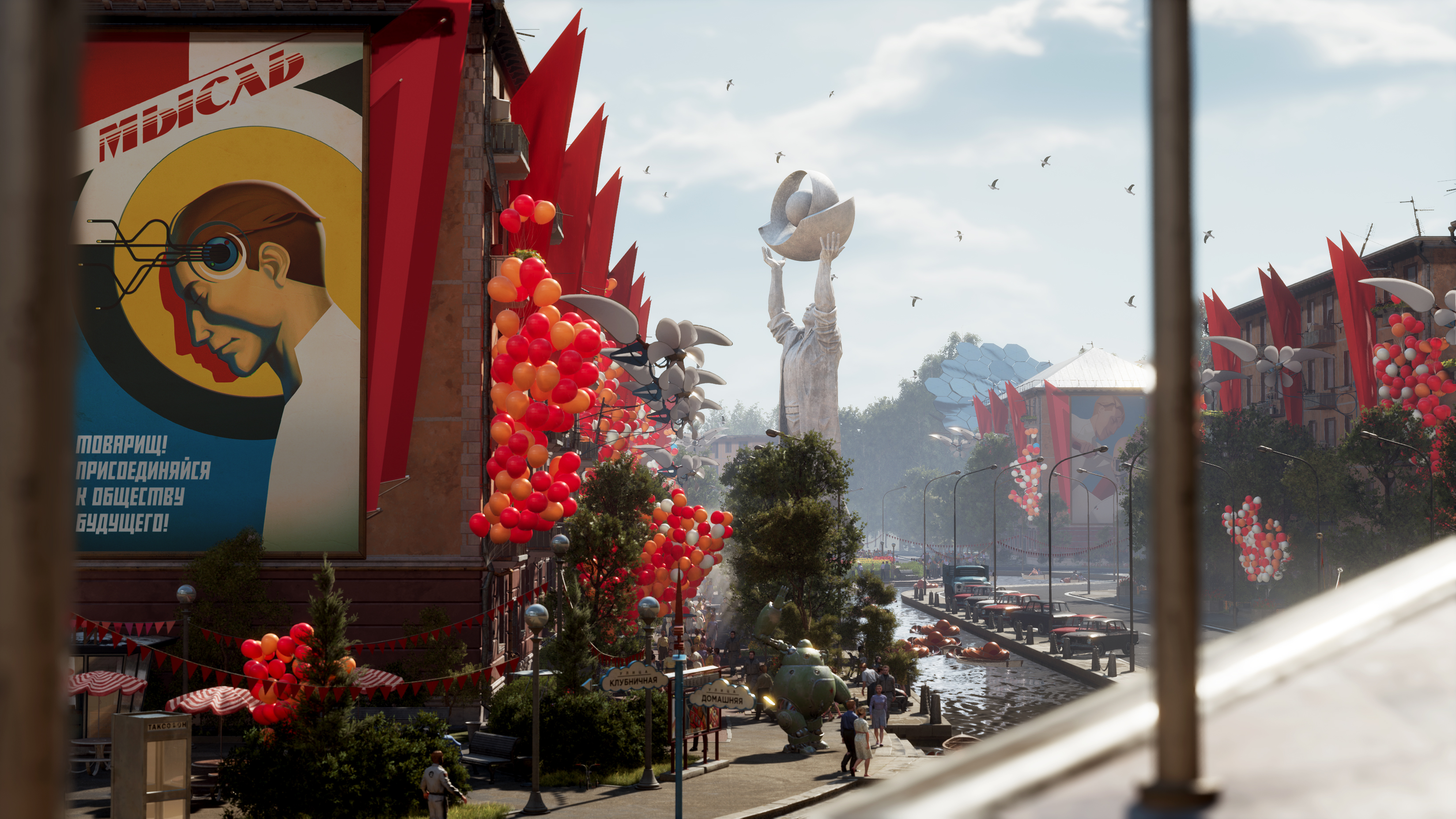
So, should I buy Atomic Heart?
In the opaque bramble of our global economy, we're all put in the difficult position to buy stuff that may be financially entangled with people, causes, or governments that, say, commit unspeakable atrocities. If we buy Hogwarts Legacy, are we indirectly supporting JK Rowling's transphobic comments? If we buy Call of Duty, are we endorsing Activision Blizzard's harmful labour practices? And if we buy Atomic Heart, are we, through some winding, invisible scheme, backing Russia's war against Ukraine?
We all have to make that decision ourselves. Personally I think the frustration felt by Ukrainians whose homes are being destroyed with Mundfish's vague, equivocal statements is entirely understandable. But I don't think there's enough concrete evidence to condemn the studio as a whole as 'pro-war' or anything like it. I suspect Mundfish, like millions of Russians, had the rug pulled out from under it by the start of a war it didn't ask for, and its moves since have been a clumsy attempt to navigate uncharted and choppy waters.
If you're interested in grappling more with this tough moral question, someone basically made four seasons of a TV show about it: The Good Place, a philosophical 2016 comedy basically about how it's impossible to get into heaven because modern society is unavoidably complicated.

One of Josh's first memories is of playing Quake 2 on the family computer when he was much too young to be doing that, and he's been irreparably game-brained ever since. His writing has been featured in Vice, Fanbyte, and the Financial Times. He'll play pretty much anything, and has written far too much on everything from visual novels to Assassin's Creed. His most profound loves are for CRPGs, immersive sims, and any game whose ambition outstrips its budget. He thinks you're all far too mean about Deus Ex: Invisible War.

